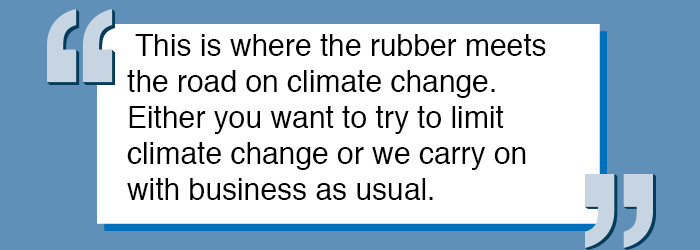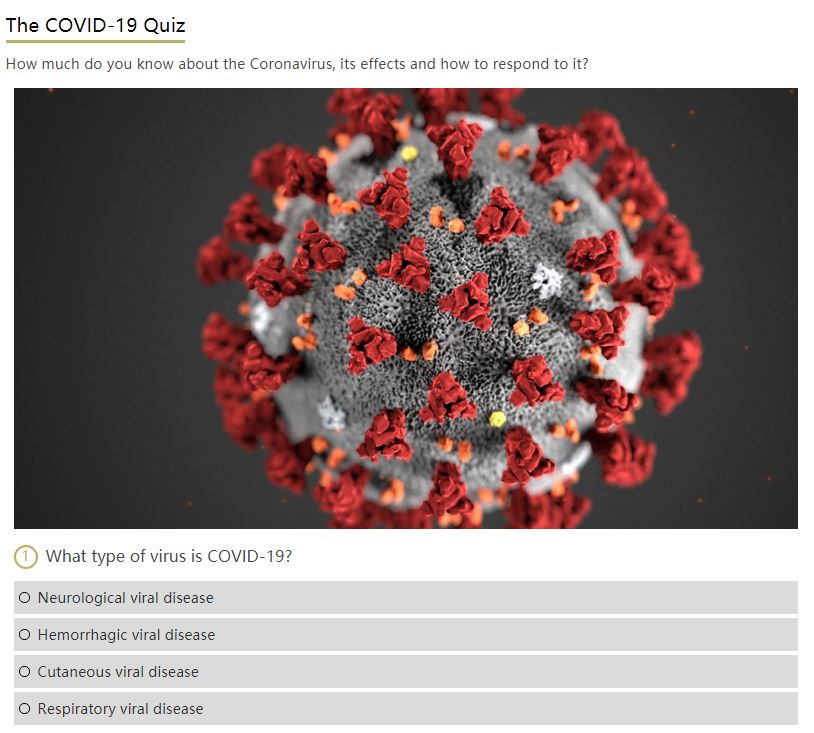"This is the first step in new way of looking at aviation, where we go for the most competitive and the least polluting options."
That's Conservative member of the UK parliament Adam Afriyie, who was speaking outside the Court of Appeals as the UK government was found to have ignored its own policies on climate change regarding the Heathrow expansion.
To hear more on the argument between climate protestors and those who think the economic value of a third runway would benefit the UK more than damage its air quality, writer and broadcaster Isabel Hilton spoke to CGTN - and of course you can read that interview below.
Elsewhere, Belgian beer manufacturer AB InBev, which makes Stella Artois and Budweiser, said
COVID-19
was affecting Asian markets to the tune of $200m.
But not every company is reporting losses amid the viral spread - Dettol and Lysol are both benefiting, as sales of hand soap and disinfectant have risen.
And in today's tech news, Chinese mobile giant Huawei has announced plans to build its european first production plant in France. It said the plant will create at least 500 jobs.
And finally, we have a report from Seoul today - as tourists to the South Korean capital find themselves stuck with little to do, as businesses and attractions have shut to stop the COVID-19 spread. You can watch Shane Hahm's report below.
Happy reading,
Patrick Atack
Digital business correspondent

Global beer manufacturer Anheuser-Busch InBev said it lost five percent on expected profits in the final quarter of 2019, and has issued a profit warning for the first quarter of 2020.It could be facing a profit downgrade of $200 million due to slowing demand in Asia.
Shares of Chinese social media giant Weibo fell more than four percent, after the company reported disappointing fourth quarter earnings and downgraded its 2020 first quarter guidance. Weibo said it expects its first quarter revenue to fall 15% to 20% year-on-year as a result of COVID-19.
Aston Martin's chief finance officer Mark Wilson is quitting after losses ballooned, sales fell and the company found a new investor to help it turn around. The luxury car company reported a $135 million loss last year as demand fell seven percent.
London's Heathrow, Europe's busiest airports, has been forced to put its expansion plans on hold, as the Court of Appeals ruled the UK government had not considered its own environmental policies when signing off on the plan.
South Africa's government is on a path to butt heads with the nation's trade unions, as Cyril Ramaphosa's administration attempts to cut the budget deficit by $10.5bn - with the public sector wage bill falling in finance minister Tito Mboweni's sights.
The European Investment Bank, the lending arm of the European Union, has agreed to a $152 million loan agreement with Bosnia, so the Balkan nation can build a strategic north-south highway, as well as several tunnels and viaducts.
German chemical and pharmaceutical manufacturer Bayer are targeting a seven-to-nine percent profit increase in 2020, despite a series of lawsuits targeting the firm's glyphosate-based weedkillers, alleging they can cause cancer.
British Airways has cut its scheduled flights to Milan, following the outbreak of COVID-19 in northern Italy. It will continue to fly to the Lombardy hub, but will merge some flights to cut down on less-demanded journeys.
French supermarket chain Carrefour has posted a 7.4 percent rise in operating profit, amid drastic cuts of around $1 billion, in an effort to stave off competition from e-commerce giants like Amazon. It is hoping to save an additional $2 billion in 2020.
Chinese tech giant Huawei says it will build its first European manufacturing plant in France. The company's chairman says it will initially invest more than $200 million in the project - and will create 500 jobs.
Disinfectant brands Dettol and Lysol have seen spikes in sales since the COVID-19 outbreak began, according to the firm which owns both, Reckitt Benckiser. Online pharmacy Medino said it had also seen a sharp rise in demand for hand sanitiser in the UK since the start of this month.
There's a lot of uncertainty at the moment surrounding the spread of COVID-19 in South Korea. That's why it's difficult for experts to predict the exact impact the outbreak will have on the country's economy. But if these empty streets at this otherwise popular tourist spot are any indication, the negative effects could be far-reaching.
02:09


For more on the Heathrow court decision, we spoke with Isabel Hilton, who's a writer and broadcaster focusing on climate change and environmental matters.
The judge did not completely rule out a third runway in the future. So this ruling presumably has effectively postponed Heathrow's expansion?
It hasn't canceled it yet, but the path forward is a little tricky to see. The government has said that it won't appeal the decision. The airport have said they will take their case to the Supreme Court would like to appeal it, but in order to do that, it would have to demonstrate that expanding Heathrow would not make Britain's commitments under the Paris agreement impossible.
And that would be very, very difficult to do. I think ... clearly aviation is one of those important and difficult contributors to climate change. So effectively, what's happened here is that the courts have said to the government: 'you want to meet the cap, the Paris commitments, but then you must show the means to achieve those commitments'.
Just explain to us how necessary was this third runway argued to be to the economy of London and in fact, the UK economy?
Well, of course, it's Europe's largest airport, it's also Britain's biggest single polluter in terms of greenhouse gases.
It's full, so there are lots of airlines that would like to fly into Heathrow and they can't because they can't open up new slots. The airport itself argues that it's vital for trade.
But this is where the rubber meets the road on climate change. Either you want to try to limit climate change or we carry on with business as usual.
And this is a moment when we begin to recognize how profound the change is. If those climate commitments are going to be met and what Heathrow's essentially arguing is that it can carry on with business as usual because the economy is the priority. And that's an argument that many countries have used in many special interest groups have used. But it is incompatible with climate commitments.
Can you explain, is this a legal victory for the green lobby in the UK or a legal victory for people who simply didn't want jets flying over their homes outside London?
Well, that's certainly a factor. And you will no doubt notice that the prime minister himself has never been enthusiastic.
And that's not because he's particularly a green campaigner, but because he has a constituency very close to the airport and very much under the shadow of the airport. So he knows that were he to support the runway, his voters would be very unhappy with them. And certainly, a lot of that part of London is blighted already by constant flights and noise and so on.
So it's a victory for both if you like. But the means of achieving that victory is very much about climate change, too. To that extent, it is an absolutely landmark green victory.
Isabelle Hilson, thank you very much.
Have you been paying attention?
Click here to try our COVID-19 quiz.

 简体中文
简体中文






